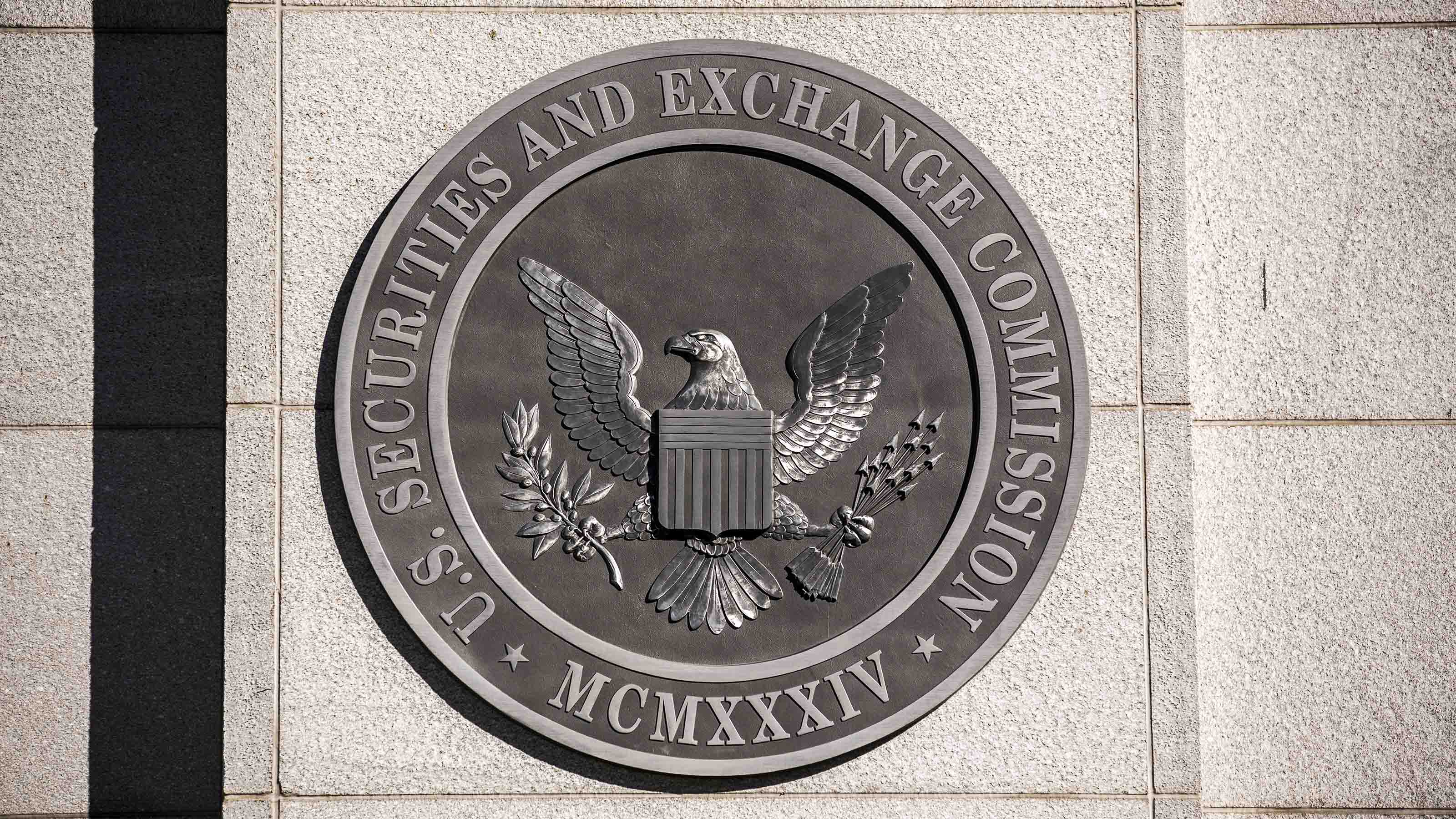3 Ways Climate Change Disclosures Would Benefit Investors
Publicly traded companies might soon have to report how they manage climate risk – and their own greenhouse gas emissions.


Profit and prosper with the best of Kiplinger's advice on investing, taxes, retirement, personal finance and much more. Delivered daily. Enter your email in the box and click Sign Me Up.
You are now subscribed
Your newsletter sign-up was successful
Want to add more newsletters?

Delivered daily
Kiplinger Today
Profit and prosper with the best of Kiplinger's advice on investing, taxes, retirement, personal finance and much more delivered daily. Smart money moves start here.

Sent five days a week
Kiplinger A Step Ahead
Get practical help to make better financial decisions in your everyday life, from spending to savings on top deals.

Delivered daily
Kiplinger Closing Bell
Get today's biggest financial and investing headlines delivered to your inbox every day the U.S. stock market is open.

Sent twice a week
Kiplinger Adviser Intel
Financial pros across the country share best practices and fresh tactics to preserve and grow your wealth.

Delivered weekly
Kiplinger Tax Tips
Trim your federal and state tax bills with practical tax-planning and tax-cutting strategies.

Sent twice a week
Kiplinger Retirement Tips
Your twice-a-week guide to planning and enjoying a financially secure and richly rewarding retirement

Sent bimonthly.
Kiplinger Adviser Angle
Insights for advisers, wealth managers and other financial professionals.

Sent twice a week
Kiplinger Investing Weekly
Your twice-a-week roundup of promising stocks, funds, companies and industries you should consider, ones you should avoid, and why.

Sent weekly for six weeks
Kiplinger Invest for Retirement
Your step-by-step six-part series on how to invest for retirement, from devising a successful strategy to exactly which investments to choose.
The Securities and Exchange Commission in March released guidance for publicly traded companies on the links between their businesses and climate change – a boon for investors, regardless of whether they’re concerned with environmental, social and governance (ESG) criteria.
Proposed SEC rules would require a number of new disclosures. For instance, companies would have to reveal any financial risks related to climate change. They also would be compelled to include details about corporate greenhouse gas emissions, which are a globally recognized way of measuring a company’s contribution to climate change. The SEC also wants a discussion of how companies are managing climate risk.
Investors focused on ESG investing have long called for standardized climate change disclosures, especially in light of the fact that public companies are responsible for 40% of greenhouse gas emissions.
From just $107.88 $24.99 for Kiplinger Personal Finance
Become a smarter, better informed investor. Subscribe from just $107.88 $24.99, plus get up to 4 Special Issues

Sign up for Kiplinger’s Free Newsletters
Profit and prosper with the best of expert advice on investing, taxes, retirement, personal finance and more - straight to your e-mail.
Profit and prosper with the best of expert advice - straight to your e-mail.
“For too long, disclosure of climate risk information by publicly traded companies has been voluntary and without uniform standards, said New York City Comptroller Brad Lander. “As a result, investors lack the information needed to evaluate the financial risks to their portfolios posed by physical climate impacts like rising seas, floods and wildfires, as well as from policies enacted to reduce emissions and exposure to climate threats.”
Many companies already report their greenhouse gas emissions, and welcome standardization efforts. But plenty of companies, business groups, and even states are likely to litigate the proposed rules.
Expect an animated 60-day comment period.
For now, however, we’ve considered three ways these climate change disclosure rules could benefit investors.
“Greenwashing” Will Be More Difficult
Greenwashing is presenting an exaggerated public image of environmental responsibility, and the SEC’s proposed rules would clamp down on this practice.
If passed, publicly traded companies would have to report annual “scope 1 and 2” emissions. These are emissions that companies are directly responsible for, such as pollution from an auto factory (Scope 1) and emissions from the energy required to power the factory (Scope 2).
In certain cases, the SEC will also require reporting of “Scope 3” emissions, or those emanating along the supply chain and from product use, such as emissions from mining the materials used to make the car, and then from driving it.
The proposed SEC climate change disclosure rules include a phase-in period, with particular flexibility on reporting Scope 3 emissions and greater latitude for smaller companies. Regardless, investors would be able to compare the emissions of different companies far more easily.
Cleaner Supply Chains
Many publicly traded companies already measure and report on Scope 1 and 2 emissions. Scope 3 is trickier, especially when companies rely on the private sector.
However, as those disclosures increase for public companies, private suppliers will have more incentive to track and manage their emissions in order to compete for contracts. Better climate management among suppliers will in turn make for a more resilient supply chain.
Carbon Offsets Will Be More Transparent
More than 5,000 companies have pledged to achieve net zero emissions by 2050. One way they intend to achieve this goal is through the purchase of carbon offsets, or projects that either capture carbon or ensure that natural carbon absorbers, such as forests, remain standing.
Carbon offsets have frustrated environmentalists and investors for their lack of standardization and clarity. The SEC's proposed climate change disclosure rules would require companies to reveal “transition plans” to a lower-carbon economy, which are widely understood to include more detail about offsets.
Profit and prosper with the best of Kiplinger's advice on investing, taxes, retirement, personal finance and much more. Delivered daily. Enter your email in the box and click Sign Me Up.

Ellen writes and edits retirement stories. She joined Kiplinger in 2021 as an investment and personal finance writer, focusing on retirement, credit cards and related topics. She worked in the mutual fund industry for 15 years as a manager and sustainability analyst at Calvert Investments. She earned a master’s from U.C. Berkeley in international relations and Latin America and a B.A. from Haverford College.
-
 Dow Adds 1,206 Points to Top 50,000: Stock Market Today
Dow Adds 1,206 Points to Top 50,000: Stock Market TodayThe S&P 500 and Nasdaq also had strong finishes to a volatile week, with beaten-down tech stocks outperforming.
-
 Ask the Tax Editor: Federal Income Tax Deductions
Ask the Tax Editor: Federal Income Tax DeductionsAsk the Editor In this week's Ask the Editor Q&A, Joy Taylor answers questions on federal income tax deductions
-
 States With No-Fault Car Insurance Laws (and How No-Fault Car Insurance Works)
States With No-Fault Car Insurance Laws (and How No-Fault Car Insurance Works)A breakdown of the confusing rules around no-fault car insurance in every state where it exists.
-
 If You'd Put $1,000 Into AMD Stock 20 Years Ago, Here's What You'd Have Today
If You'd Put $1,000 Into AMD Stock 20 Years Ago, Here's What You'd Have TodayAdvanced Micro Devices stock is soaring thanks to AI, but as a buy-and-hold bet, it's been a market laggard.
-
 If You'd Put $1,000 Into UPS Stock 20 Years Ago, Here's What You'd Have Today
If You'd Put $1,000 Into UPS Stock 20 Years Ago, Here's What You'd Have TodayUnited Parcel Service stock has been a massive long-term laggard.
-
 If You'd Put $1,000 Into Lowe's Stock 20 Years Ago, Here's What You'd Have Today
If You'd Put $1,000 Into Lowe's Stock 20 Years Ago, Here's What You'd Have TodayLowe's stock has delivered disappointing returns recently, but it's been a great holding for truly patient investors.
-
 If You'd Put $1,000 Into 3M Stock 20 Years Ago, Here's What You'd Have Today
If You'd Put $1,000 Into 3M Stock 20 Years Ago, Here's What You'd Have TodayMMM stock has been a pit of despair for truly long-term shareholders.
-
 If You'd Put $1,000 Into Coca-Cola Stock 20 Years Ago, Here's What You'd Have Today
If You'd Put $1,000 Into Coca-Cola Stock 20 Years Ago, Here's What You'd Have TodayEven with its reliable dividend growth and generous stock buybacks, Coca-Cola has underperformed the broad market in the long term.
-
 If You Put $1,000 into Qualcomm Stock 20 Years Ago, Here's What You Would Have Today
If You Put $1,000 into Qualcomm Stock 20 Years Ago, Here's What You Would Have TodayQualcomm stock has been a big disappointment for truly long-term investors.
-
 If You'd Put $1,000 Into Home Depot Stock 20 Years Ago, Here's What You'd Have Today
If You'd Put $1,000 Into Home Depot Stock 20 Years Ago, Here's What You'd Have TodayHome Depot stock has been a buy-and-hold banger for truly long-term investors.
-
 3 Major Changes Investors Must Prepare for in 2026
3 Major Changes Investors Must Prepare for in 2026A possible stock market bubble. Trump accounts. Tokenized stocks. These are just three developments investors need to be aware of in the coming months.